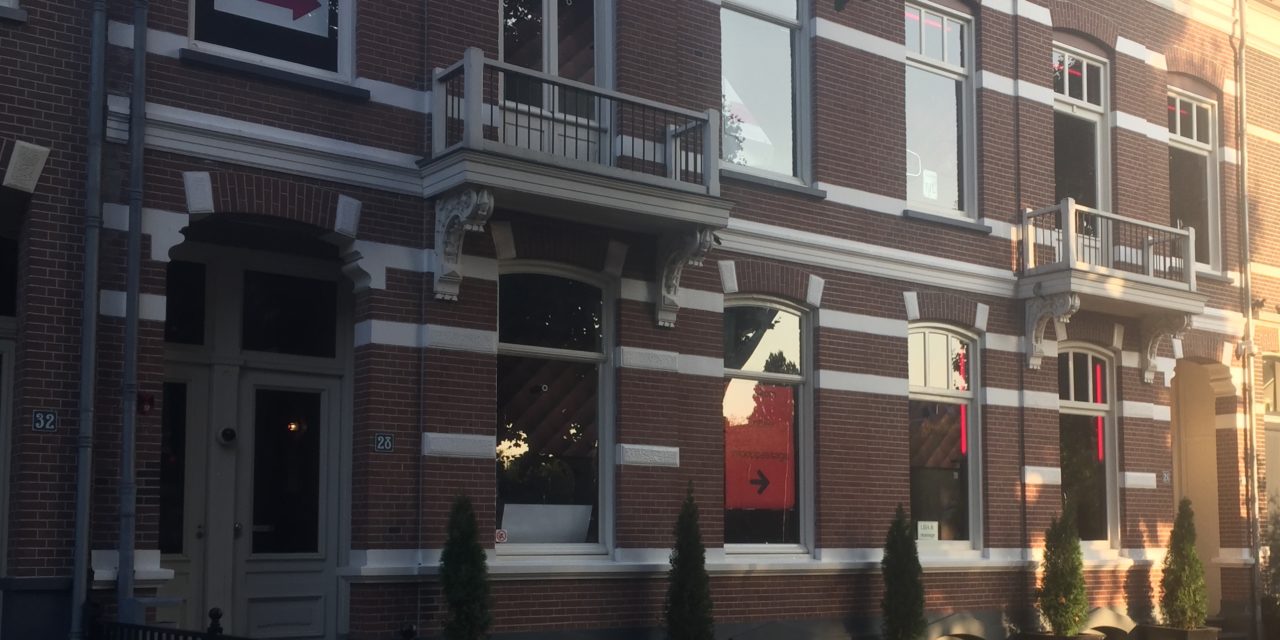In the Dutch House of Representatives, the Christian parties CDA, ChristenUnie and SGP are calling for a ban on paid sex. The government parties are embracing a citizens’ initiative of the youth movement ‘Exxpose’ in which that ban is proposed. Most parties in the House of Representatives are not in favor of this ban, but what could be the consequences of a possible ban on paid sex? Rodney Haan, advisor on prostitution policy at the Center for Crime Prevention and Security (CCV), talks about the possible consequences of the amendment to the law. “When many municipalities make prostitution impossible, there is an increasing risk that the prostitutes will work underground.”
Exxpose is a movement of young people in the Netherlands that wants to show the reality of sex work. With the petition – which is signed by more than 40.000 Dutch citizens – the initiators hope that the Netherlands will criminalize the buying of sex. The ban on brothels has been abolished in the Netherlands since 2000. Before the cancellation of the brothel ban, paid sex was already tolerated. The added value of keeping prostitution in the criminal circuit had disappeared because paid sex was not punished. “The logical solution was to cancel the ban on drilling and to give more openness to the profession, so that there could be more insight into the prostitution field,” says Haan.
According to Haan, a possible ban on paid sex leads to the same situation that is now taking place in Sweden: “Sexual services are still offered, but then underground – hidden. As a result, it’s no longer visible to society, making it more difficult to trace. In a liberal country like the Netherlands, the profession of sex worker would end up illegally. The possible abuses that could take place as a result of this are increasing, such as exploitation.”
In Sweden, Norway and France it is already a criminal offense to “buy” sex. Just because paid sex is a criminal offense doesn’t mean it doesn’t happen anymore. In Belgium it is not prohibited, but at the same time sex work is not allowed. Yet in some places people turn a blind eye. In some bars the pleasure ladies are present and at those places sex work is allowed.
Where there is a need for paid sex, there will also be a market that offers it. The question is, “How do we want this to take place?” In Sweden, they criminalize the person who goes to the sex worker. The prostitute herself is offered an assistance program to leave prostitution. The problem is, many ladies don’t want that.
“Where people work, people try to avoid rules. Sex work is a profession, which must also be given opportunities. It is important that there is a good safety net when the sex workers have questions or run into something and need help. Good regulation of this market is therefore very important.”
The discussion about paid sex is becoming increasingly complex. A Dutch law that will regulate sex work has been under development since 2007, but hasn’t passed yet. Rodney Haan supports parties, such as municipalities, in drafting policy or refining policy on human trafficking and prostitution. “When many municipalities make prostitution impossible, there is an increasing risk that the prostitutes will work underground. We are now working on a third version of the law and even now I wonder whether this version will get through. At the moment, each municipality can give its own twist on how they want to shape the policy locally. This must be more centralized, so that there are certain starting points.”
Enlarge

Susanne Jansen
As long as sex work remains legal, much of what is going on remains visible. Parties who are against paid sex talk about human trafficking because they believe that the sex is not voluntary. If it does not take place voluntarily and there is compulsion, you’re talking about human trafficking and in this case sexual exploitation. “That is not always the case and that makes the whole discussion about the ban on paid sex so difficult. Human trafficking can be divided into various phenomena. On the one hand, you have sexual exploitation, which is very quickly linked to prostitution. At the same time, there is also labor exploitation or criminal exploitation. Human trafficking is much broader than just sexual exploitation. That is not always the case and that makes the whole discussion about the ban on paid sex so difficult.”
For now there will not be a ban on prostitution any time soon, even though it remains a sensitive subject within Dutch law.




